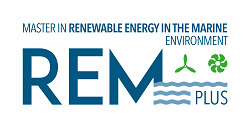Scholar Activities Intake 2024-2026
Attendace to the conferences is open to the academic community and REM+ associate partners.
- 02/05/2025. A. Shekhar “FMT & PhD opportunities at TU-Delft”
- 05/05/2025. A. Shekhar “Reliable power electronic systems”
- 13/06/2025. R. Fuchs “Physics and Numerical Modeling of Electric Arcs in Circuit breakers”
- 16/06/2025. J. Henriques “Balances of physical quantities with applications to renewable energies”
- 17/06/2025. J. Henriques “Symplifiying Complexity Using Dimensional Analysis”
- 17/06/2025. G. Lavidas “Best practices and considerations to evaluate WEC”
- 17/06/2025. T. Vyzikas “Numerical tools for the modelling of water waves and extreme waves”
- 18/06/2025. G. Lavidas “Offshore energy system integration”
- 18/06/2025. T. Vyzikas “Climate and energy policies related to Marine Renewable Energy & Career paths for engineers”
- 18/06/2025. P. Ricci “Design and development of offshore renewable farms”
- 19/06/2025. P. Ricci “Design and development of offshore renewable farms”
- 19/06/2025. J. Davidson “Numerical Wave Tank testing for Marine Renewable Energy Device”
- 19/06/2025. P. Mancarella “Security, Reliability and Resilience in Low-carbon Power Systems”
 Aditya Shekhar is Assistant Professor (Tenure Track) in the field of Reliable Power Electronic Systems in Delft University of Technology since 2021 and developed the Power Electronics and Reliability Lab (The PEARL) where accelerated lifetime tests of power electronic modules can be performed. He completed his Phd in the topic of Reconfigurable DC Links from the same university in 2020. He has 15 Journals and more than 30 conference papers on several research topics such as reliable power electronics, capacity enhanced medium voltage dc grids, smart charging of electric vehicles, modular multilevel converters, partial discharges in cables, series arc protection in dc micro-grids, wireless EV charging and solar roads.
Aditya Shekhar is Assistant Professor (Tenure Track) in the field of Reliable Power Electronic Systems in Delft University of Technology since 2021 and developed the Power Electronics and Reliability Lab (The PEARL) where accelerated lifetime tests of power electronic modules can be performed. He completed his Phd in the topic of Reconfigurable DC Links from the same university in 2020. He has 15 Journals and more than 30 conference papers on several research topics such as reliable power electronics, capacity enhanced medium voltage dc grids, smart charging of electric vehicles, modular multilevel converters, partial discharges in cables, series arc protection in dc micro-grids, wireless EV charging and solar roads.
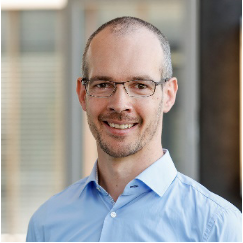 Roman Fuchs is Senior Researcher and Lecturer at OST Eastern Switzerland University of Applied Sciences. He was awarded a doctorate at ETH Zürich in 2021 on Numerical Modeling of Electric Arcs, which has been his main research field for more than a decade. He is also interested in multiphysical simulations in industrial applications such as particle-laden flows and granular flows, as well as high-performance computing in general. His background is in Mathematics and Computational Science with a focus on Computational Fluid Dynamics. He is teaching Calculus and Programming to first-year students, and he is leading a further education program (Certificate in Advanced Studies in Computational Fluid Dynamics) at OST.
Roman Fuchs is Senior Researcher and Lecturer at OST Eastern Switzerland University of Applied Sciences. He was awarded a doctorate at ETH Zürich in 2021 on Numerical Modeling of Electric Arcs, which has been his main research field for more than a decade. He is also interested in multiphysical simulations in industrial applications such as particle-laden flows and granular flows, as well as high-performance computing in general. His background is in Mathematics and Computational Science with a focus on Computational Fluid Dynamics. He is teaching Calculus and Programming to first-year students, and he is leading a further education program (Certificate in Advanced Studies in Computational Fluid Dynamics) at OST.
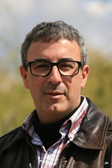 João C. C. Henriques was born in 1969 in Lisbon, Portugal. He obtained his Ph.D. in Mechanical Engineering in 2006, all at the Instituto Superior Técnico (IST), University of Lisbon. From 1993 to 2007, his main research topic was the development of numerical methods for the simulation of high speed compressible flows. Since 2008, his main research areas are the numerical and experimental modelling of wave energy converters (WECs), the control of the power take-off systems and the aerodynamic design of air turbines for oscillating water columns. He is currently an Associate Professor at IST.
João C. C. Henriques was born in 1969 in Lisbon, Portugal. He obtained his Ph.D. in Mechanical Engineering in 2006, all at the Instituto Superior Técnico (IST), University of Lisbon. From 1993 to 2007, his main research topic was the development of numerical methods for the simulation of high speed compressible flows. Since 2008, his main research areas are the numerical and experimental modelling of wave energy converters (WECs), the control of the power take-off systems and the aerodynamic design of air turbines for oscillating water columns. He is currently an Associate Professor at IST.
 George Lavidas is an Assistant Professor of Marine Renewable Energies at the Offshore Engineering group, and Head of the Marine Renewable Energies Lab (MREL). Dr. Lavidas has a PhD from the University of Edinburgh, he has been the recipient of the prestigious Marie Skłodowska Curie Individual Fellowship. In 2022 he was included among the top 2% of the most influential scientists, according to the Standford World’s Top Scientists. His primary focus is the development of technologies through interdisciplinary methodologies that accelerate the energy transition. Within his research interests are renewable energy generation, ocean modelling, resource assessments, wind & ocean energies, wave farm arrays, extreme waves, wave statistics, Climate Change, and integration of marine renewables.
George Lavidas is an Assistant Professor of Marine Renewable Energies at the Offshore Engineering group, and Head of the Marine Renewable Energies Lab (MREL). Dr. Lavidas has a PhD from the University of Edinburgh, he has been the recipient of the prestigious Marie Skłodowska Curie Individual Fellowship. In 2022 he was included among the top 2% of the most influential scientists, according to the Standford World’s Top Scientists. His primary focus is the development of technologies through interdisciplinary methodologies that accelerate the energy transition. Within his research interests are renewable energy generation, ocean modelling, resource assessments, wind & ocean energies, wave farm arrays, extreme waves, wave statistics, Climate Change, and integration of marine renewables.
 Tomas Vyzikas is currently the Coordinator of the Marie Skłodowska-Curie Actions (MSCA) Doctoral Networks Engineering and ICT Panel, and, in parallel, lectures a full-term Master course about Climate Change at the Open University of Cyprus. Civil Engineering graduate from Aristotle University of Thessaloniki, with MSc specialisation in Hydraulics and Environmental Engineering, and a keen interest in coastal, ocean engineering and marine renewable energy. His research during the PhD, funded under the EU project MERiFIC (Marine Energy in Far Peripheral and Island Communities) at Plymouth University, focused on the numerical modelling and physics on extreme ocean waves for the survivability of offshore structures. Since 2016, he works at Horizon funding programmes in different roles as Call Coordinator and Scientific Project Officer, and he is responsible for fruitful synergies in the areas of wind energy and blue economy.
Tomas Vyzikas is currently the Coordinator of the Marie Skłodowska-Curie Actions (MSCA) Doctoral Networks Engineering and ICT Panel, and, in parallel, lectures a full-term Master course about Climate Change at the Open University of Cyprus. Civil Engineering graduate from Aristotle University of Thessaloniki, with MSc specialisation in Hydraulics and Environmental Engineering, and a keen interest in coastal, ocean engineering and marine renewable energy. His research during the PhD, funded under the EU project MERiFIC (Marine Energy in Far Peripheral and Island Communities) at Plymouth University, focused on the numerical modelling and physics on extreme ocean waves for the survivability of offshore structures. Since 2016, he works at Horizon funding programmes in different roles as Call Coordinator and Scientific Project Officer, and he is responsible for fruitful synergies in the areas of wind energy and blue economy.
 Pierpaolo Ricci is Chartered Engineer with more than fifteen years of experience in the marine and offshore industry. He has a MsC in mechanical engineering from the University of Bologna and a PhD in mechanical engineering from Instituto Superior Tecnico, University of Lisbon. Dr. Ricci has cutting edge research experience in the offshore renewables and hands-on industry experience of design, construction and installation of floating structures. He has held several positions in Tecnalia, Global Matitime Consultancy, Orwell Offshore and Tadek Offshore. Currently, he works in SSE Renewables as Floating Wind Technical Authority.
Pierpaolo Ricci is Chartered Engineer with more than fifteen years of experience in the marine and offshore industry. He has a MsC in mechanical engineering from the University of Bologna and a PhD in mechanical engineering from Instituto Superior Tecnico, University of Lisbon. Dr. Ricci has cutting edge research experience in the offshore renewables and hands-on industry experience of design, construction and installation of floating structures. He has held several positions in Tecnalia, Global Matitime Consultancy, Orwell Offshore and Tadek Offshore. Currently, he works in SSE Renewables as Floating Wind Technical Authority.
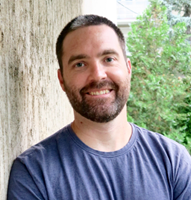 Dr Josh Davidson is from Townsville, Australia, where he studied at James Cook University, earning a First Class Honours degree and a PhD in the School of Engineering and Physical Sciences. He served as the Deputy Director at the Centre for Ocean Energy Research (COER), Maynooth University, Ireland, working on nonlinear hydrodynamic modelling and control of wave energy converters and the development of Computation Fluid Dynamics (CFD) based Numerical Wave Tanks. After this, he relocated to the Dept of Fluid Mechanics at Budapest University of Technology and Economics, as a Research Fellow supported by an EU grant for the project Nonlinear Rock and Roll – Modelling and Control of Parametric Resonance in Wave Energy Converters, after which he worked as an Assistant Professor teaching Fluid Mechanics and CFD. He is currently a Research Fellow at the Basque Center for Applied Mathematics, working on a project “High Fidelity Simulatitons and Deep Learning for Offshore Wind”.
Dr Josh Davidson is from Townsville, Australia, where he studied at James Cook University, earning a First Class Honours degree and a PhD in the School of Engineering and Physical Sciences. He served as the Deputy Director at the Centre for Ocean Energy Research (COER), Maynooth University, Ireland, working on nonlinear hydrodynamic modelling and control of wave energy converters and the development of Computation Fluid Dynamics (CFD) based Numerical Wave Tanks. After this, he relocated to the Dept of Fluid Mechanics at Budapest University of Technology and Economics, as a Research Fellow supported by an EU grant for the project Nonlinear Rock and Roll – Modelling and Control of Parametric Resonance in Wave Energy Converters, after which he worked as an Assistant Professor teaching Fluid Mechanics and CFD. He is currently a Research Fellow at the Basque Center for Applied Mathematics, working on a project “High Fidelity Simulatitons and Deep Learning for Offshore Wind”.
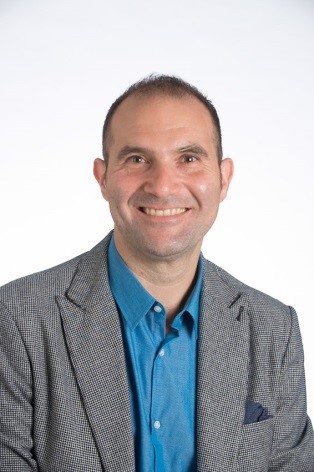
Dr. Pierluigi Mancarella is the Chair Professor of Electrical Power Systems at The University of Melbourne, Australia, and Professor of Smart Energy Systems at The University of Manchester, UK. He received his MSc (2002) and PhD (2006) degrees from the Politecnico di Torino, Italy, worked as a post-doc at Imperial College London, UK, has held visiting positions in the US (NREL), France (Ecole Centrale de Lille), Chile (University of Chile), and China (Tsinghua University), and the Danish Technical University (DTU), Denmark (as 2024 Otto Monsted Visiting Professor). Pierluigi’s research interests include techno-economic modelling of low-carbon grids, multi-energy systems, energy system planning under uncertainty, and reliability and resilience of future networks. He has been involved in/led more than 100 research projects worldwide, has been actively engaged with energy policy in the UK, Europe and Australia, and is author of several books and of over 400 research publications and reports. Pierluigi is the Australian Director of the USA-UK-Australia Global Centre in Climate Change and Clean Energy “Electric Power Innovation for a Carbon-Free Society (EPICS)”, co-led with Johns Hopkins University (USA) and Imperial College London (UK).
The activity consists of four presentations that address the following topics:
1) “Introduction” (1h)
– Motivation
– Focus
– Challenges
– Opportunities & direction
2) “Failure modes and condition monitoring” (1h)
– Components in power electronic systems
– Failure modes of power electronic switches
– Condition monitoring
3) “Converter reliability” (1h)
– Components to systems
– Reliability block diagram
– Mission profile based component stresses
4) “MMC reliability” (1h)
– Block diagram of MMC
– Reliability of MMC
– Impact of redundancy
Lectures’ timetable:
May 5 (11h30 to 13h30) Lect. 1 & 2
May 6 (09h00 to 11h00) Lect. 3 & 4
Circuit breakers are engineered to safely interrupt currents and isolate faulty sections of the electrical power network and prevent damage caused by overcurrents or short circuits under normal or fault conditions; hence, they contribute reliable operation of the power system.
When a circuit breaker is triggered to open, an electric arc may form due to the high voltage and current. We will discuss fundamental physics from an applied perspective. We discuss the Cassie-Mayr model as a zero-dimensional representation of arcs. We then consider 3D-simulations of electric arcs which requires a coupled solution of compressible fluid dynamics, electromagnetism, radiative heat transfer and advanced physics modeling. Subsequently, we build on these fundamental aspects and discuss the working principle of High Voltage Circuit Breakers in AC and DC power networks. We conclude with aspects of Low Voltage Circuit Breakers, and their use in Electric Vehicles.
Seminar contents
Introduction
|
Fundamentals on Electric Arcs Modeling
|
Numerical modeling of electric arcs
|
HVAC circuit breakers of gas-blast type
|
Low voltage circuit breakers
|
Lecture timetable: June 13 (9h00 to 13h00)
The presentation aims to derive the balances of mass, linear momentum, angular momentum and energy for Fluid Mechanics in a simple form. Applications to renewable energy cases are described to give a deep insight into the physics involved.
Lecture timetable: June 16 (16h00 to 18h30)
This presentation explains how dimensional analysis can be used to model and understand engineering problems related to renewable energy. Topics covered include dimensional analysis, the Buckingham theorem and the Navier-Stokes equations. Froude scaling will be demonstrated from a physical point of view, a perspective not usually found in books and research papers. Some examples will be discussed during the lecture.
Lecture timetable: June 17 (08h30 to 11h00)
This first lecture will touch upon best-practises and considerations necessary to evaluate a WEC and/or WEC farm.
Lectures’ timetable:
June 17 (11h30 to 14h00) Lect. 1
The second talk will focus on energy system integration and will present to students a novel Energy System Model developed at the Marine Renewable Energies Lab (MREL). The model for the first time includes the modelling and assessment of WECs, tidal and floating wind. The talk will describe the basic considerations needed for WEC market adaptation, and their potential impacts on the European Energy System.
Lectures’ timetable:
June 18 (08h30 to 11h00) Lect. 2
This 2-hour lecture has two distinct parts: 1) general principles and tools for the modelling of water waves and 2) the physics and modelling of extreme waves.
The first part gives a brief overview of the various areas of application of numerical modelling of water waves and present the different tools that can be used in each case. From climate and meteorological applications at large spatial and time scales, down to wave-structure interactions with high accuracy models, the applicability and limitations of the tools will be discussed. Attention is given to the principles of designing Numerical Wave Tanks in Computation Fluid Dynamics CFD models.
The second part of the lecture gives an introduction to extreme ocean waves. From sailors’ tales to measured giant waves, it discusses how these waves caught the attention of the scientific community and became an active area of research for the designing of offshore structures. Different generation mechanisms for extreme waves are presented and the lecture concludes with a practical way to model extreme waves in CFD using focusing methodologies stemming from the NewWave theory.
Lecture timetable: June 17 (15h30 to 18h00)
This 2-hour lecture is structured as follows:
At first, it presents the main EU and international policies related to climate and energy, and how these link with the offshore energy strategy. Starting from the current projections of emissions and global warming based on IPCC reports, and moving to the necessity for climate adaptation and mitigation, it discusses the key role of the marine energy sector. The path to climate neutrality for Europe is also discussed together with the just transition, the challenges, and the financing mechanisms needed to reach the ambitious targets for renewable energy and emission reductions until 2030 and 2050.
The second part of the lecture focuses on career paths for engineers. One of the biggest challenges in the development of green economy is the ‘skills gap’. Highly qualified engineers and scientists with interdisciplinary experience and transferable skills are needed to fill the gaps of the present and meet the challenges of the future at all areas from construction, to research and from education to policy making and administration. The lecture includes a workshop where participants can ask for advice and discuss their career paths, sharing experience with the lecturer in the transitioning between sectors and roles, together with advantages and potential setbacks. Career options are discussed with tips for where to find vacancies for PhD positions and how to apply for relevant EU institutions and international organisations.
Lectures’ timetable:
June 18 (11h30 to 14h00) Lect. 2
The contribution will be based on four different sessions around the design and development of offshore renewable farms with particular focus on floating wind:
– The first session will be discussing the “Project development for offshore wind farms” and will introduce to the students the process to conceive, design, and develop an offshore wind farm from the bid to the commissioning phase, including consideration on consenting application aspects, grid connection requirements, and commercial and regulatory mechanisms. This session may include a small exercise on analysing the best wind farm layout from different perspectives.
– The second session will discuss “Floating structures concepts and classification”, with an overview of the existing technologies for floating wind and wave energy and a consideration on the classification criteria that can be applied for their selection and definition, with a view into SSE internal processes.
– The third session will be “Hydrodynamics and modelling aspects” and will review the hydrodynamic principles of floating structures for offshore renewable installations, with specific reference to floating wind technologies, and will consider the existing modelling techniques, tools, and software used by designers and developers for the assessment of their performance, including the coupling with Wind Turbine Generators (WTGs).
– The final session will analyse the components and techmologies required for the station-keeping and energy transmission. The proposed title is “Moorings system, Dynamic Cables and Marine Operations”. This session will discuss the mooring systems and dynamic cables applied in the floating wind industry, the components and the existing supply chain, and the associated marine operations for their installation.
Lectures’ timetable:
June 18 (15h30 to 18h00) Lect. 1
June 19 (08h30 to 11h00) Lect. 2
The goal of the lectures is to teach students about the development and optimisation of marine renewable energy devices at low to mid Technology Readiness Levels (TRL) using computational models. Demonstrating the advantages of early-stage Numerical Wave Tank experimentation to increase the Technology Performance Level (TPL) of devices before investing in expensive physical prototyping, tank and ocean testing, and then later-stage Numerical Wave Tank simulations to supplement the physical testing campaigns.
The Lecture Course will encompass topics such as :
1. The role of Numerical Wave Tanks in marine renewable energy device development
2. Hydrodynamic modelling
3. Mooring, PTO and Control systems
4. Numerical Wave Tank experiments
Lectures’ timetable:
June 19 (11h30 to 14h00) Lect. 1
June 19 (15h30 to 18h00) Lect. 2
Our understanding of the classical reliability concepts of security and adequacy is increasingly being challenged by: (a) growing shares of inverter-based resources and weather-driven variable renewable energy technologies that call for new operation and planning approaches, particularly to deal with decreasing levels of inertia and system strength, larger reserve requirements, and increasing volumes of distributed energy resources that are not “visible” to the system operator; and (b) the more frequent occurrence of extreme, high-impact low-probability events (including driven by climate change), with potentially catastrophic impacts.
In this lecture we will discuss the need for introducing new analysis and modelling frameworks to deal with the increasing fragility of low-carbon grids and exposure to extreme events. The key desirable features of such frameworks will be presented for operation and planning and from technical, technology, regulatory, and economic perspectives, along with metrics, methodologies and modelling tools that can help make future systems (and markets) more secure, reliable and resilient.
A number of major events that occurred in recent years around the world will be analysed and compared, including the South Australia “Black System” event of September 2016, the Australian system separation event of August 2018, several events in different parts of Australia with significant disconnection of distributed generation, the UK demand disconnection event of August 2019, the February 2025 Chilean blackout, and finally the April 2025 blackout in the Iberian peninsula.
Lectures’ timetable:
June 19 (17h00 to 18h30)
To download the presentations right click on the tittle and select open:
- A. Shekhar “Reliable power electronic systems”
- R. Fuchs “Physics and Numerical Modeling of Electric Arcs in Circuit breakers”
- J. Henriques “Balances of physical quantities with applications to renewable energies”
- J. Henriques “The integrated development of the spar-buoy OWC wave energy converter at IST”
- J. Henriques “Symplifiying Complexity Using Dimensional Analysis”
- G. Lavidas “Best practices and considerations to evaluate WEC”
- T. Vyzikas “Numerical tools for the modelling of water waves and extreme waves”
- G. Lavidas “Offshore energy system integration”
- T. Vyzikas “Climate and energy policies related to Marine Renewable Energy & Career paths for engineers“
- P. Ricci “Design and development of offshore renewable farms”
- P. Ricci “Design and development of offshore renewable farms”
- J. Davidson “Numerical Wave Tank testing for Marine Renewable Energy Device”. Lecture 1 & Lecture 2
- P. Mancarella “Security, Reliability and Resilience in Low-carbon Power Systems”
[last update = 07/16/2025]
